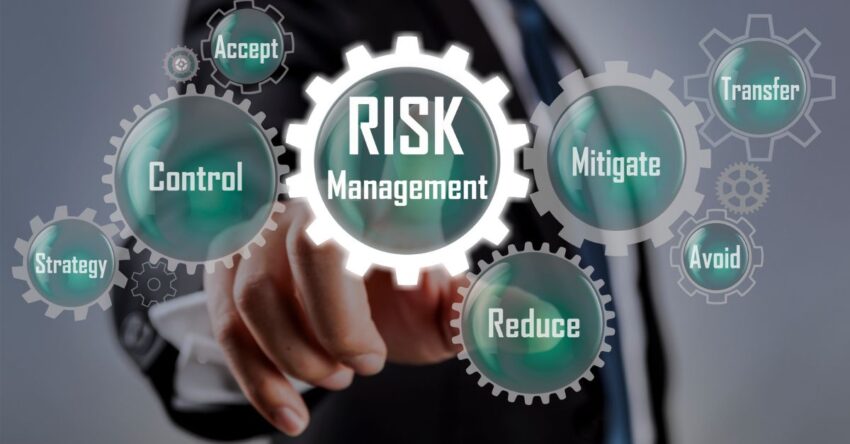
Most companies think hiring is just HR’s job. You write job descriptions, set up interviews, and pick who gets hired. Seems straightforward, right?
But here’s what nobody talks about: every new employee is basically a bet you’re making with your business. And some of those bets can go spectacularly wrong. Yet most businesses don’t involve risk experts in hiring decisions.
This needs to change. Professional consultants for risk advisory bring skills that HR teams often lack. They know how to spot red flags, assess threats, and protect your business from hiring mistakes.
Understanding Hiring Risk
Think about what you’re actually doing when you hire someone. You’re handing over passwords, client lists, and inside information about how your business works. You’re hoping they’ll use all that responsibly.
Sometimes they don’t. And when they mess up, it’s your problem to fix.
Some risks are obvious. You wouldn’t hire someone with a criminal record for a finance position. But many risks hide beneath the surface.
The charming sales candidate might have a history of jumping to competitors and taking clients with them. The technical expert could have undisclosed conflicts of interest with your suppliers.
Risk advisors see patterns that others miss. They understand how small problems become big disasters when you don’t address them early.
What Risk Advisors Bring to Hiring
Risk advisors think differently from HR professionals. HR focuses on qualifications, skills, and cultural fit. Risk advisors look for potential threats and vulnerabilities.
They ask different questions: What could go wrong with this hire? What’s this person’s real motivation for joining? Are there any red flags we’re ignoring?
Background checking for employment in Indonesia becomes more thorough when risk experts guide the process. They know which checks matter most for different roles and industries.
The Financial Impact Connection
Risk advisors understand how hiring decisions affect your bottom line. They can calculate the real cost of different types of bad hires.
A dishonest employee in accounting creates different risks than an unreliable salesperson. The advisor helps you understand these differences and prepare accordingly.
They also know which positions deserve extra scrutiny. Someone with access to financial systems needs deeper screening than someone in customer service, even at the same salary level.
Red Flags Most People Miss
Here’s the thing about HR folks – they’re wired to like people. That’s their strength, but it can be a weakness too. HR would like to give a chance to a person coming with a sob story as to why they left their last job. They are looking for reasons to say yes and not the reasons to say no.
Whereas, that person who tells the emotional story might have done something very serious to get fired that they hide from the HR.
Risk advisors balance this perspective with healthy skepticism. They notice when stories don’t quite add up or when explanations seem rehearsed.
They pay attention to subtle warning signs:
- Vague answers about previous job responsibilities
- Reluctance to provide specific examples of past work
- Inconsistent information across different conversations
- Unusual gaps in employment history without clear explanations
Integration with Your Current Process
You don’t need to replace your HR team with risk advisors. The best approach combines both perspectives throughout the hiring process.
Risk advisors can help design better interview questions that reveal character issues. They can guide background check decisions to focus on the most important areas.
Consultant risk advisory indonesia services work with your existing team, not against them. They work alongside your current team, not instead of them. Think of it like having a security guard who actually knows what to look for.
What Your Industry Actually Needs
Not every business faces the same hiring risks. If you run a software company, you’re probably worried about someone copying your code and starting their own competing business. If you’re in healthcare, you’re more concerned about someone who might put patients at risk.
Good risk advisors get this. They’ve worked with companies like yours before and know where the real problems usually come from. They won’t waste time checking things that don’t matter for your specific situation.
Plus, regulations change all the time. What was fine to ask candidates last year might get you in legal trouble now. Risk advisors keep track of this stuff so you don’t have to.
The Cost-Benefit Analysis
Involving risk advisors in hiring costs money upfront. But compare this cost to the price of a major hiring mistake.
One bad hire in a senior position can cost hundreds of thousands in legal fees, lost productivity, and damage control. Even junior-level mistakes add up over time.
Risk advisory services pay for themselves by preventing expensive problems. They’re insurance against the hiring mistakes that could seriously hurt your business.
When to Involve Risk Experts
Not every hire needs the same level of risk assessment. Focus advisory services on positions where mistakes cost the most:
- Senior management roles
- Positions with access to financial systems
- Jobs involving customer data or trade secrets
- Roles requiring regulatory compliance
- Positions with significant autonomy or travel
For these critical hires, the extra investment in risk assessment makes perfect sense.
Working with Local Expertise
Risk assessment works best when advisors understand local business conditions, legal requirements, and cultural factors.
Background checking for employment in Indonesia requires knowledge of local systems, databases, and verification processes. International risk advisory firms might miss important local details.
Choose advisors who combine global risk expertise with deep local knowledge. They’ll give you the most accurate and useful assessments.
Building Long-Term Partnerships
The best risk advisory relationships extend beyond individual hiring decisions. The smart ones don’t just help you with one hire and disappear. They stick around and teach your team what to watch for.
After working with a good risk advisor for six months, your HR people start asking better questions. They notice when someone’s story doesn’t quite add up. They know which background checks matter and which ones are just paperwork.
This partnership approach maximizes the value of your investment in risk advisory services.
Common Objections and Responses
Some managers resist involving risk advisors in hiring. I get why managers push back on this. Nobody wants to scare away good candidates with a bunch of invasive questions and background checks.
But here’s what happens: the good candidates don’t mind reasonable screening. They expect it. The people who get weird about basic background checks? Those are usually the ones hiding something you don’t want to find out about later.
Candidates who object to reasonable background screening probably aren’t the people you want to hire anyway. Good candidates understand that thorough companies make better employers.
Using Tech the Right Way
Sure, computers can run background checks and scan databases faster than any human. But they’re terrible at reading between the lines.
A computer might tell you someone worked at three companies in two years. A human can figure out whether they were job-hopping because they’re restless, or because they kept getting fired for the same problem. Automated systems can quickly scan databases and verify basic information.
But human expertise remains essential for interpreting results, asking follow-up questions, and understanding context that computers miss.
The best consultant risk advisory Indonesia services use technology to enhance human capabilities, not replace them.
Measuring Success
How do you know if risk advisory services are worth the investment? Track metrics that matter:
- Reduction in hiring mistakes
- Decreased employee turnover in critical positions
- Fewer legal or compliance issues related to personnel
- Improved quality of hires in senior roles
These improvements often justify the cost of risk advisory services within the first year.
The Future of Risk-Aware Hiring
As business risks become more complex, risk-aware hiring will become standard practice. Companies that adapt early gain competitive advantages.
They avoid the costly mistakes that hurt their competitors. They build stronger, more reliable teams. They protect themselves from threats that others don’t even recognize.
The question isn’t whether to involve risk advisors in your hiring process. It’s how quickly you can start benefiting from their expertise.

